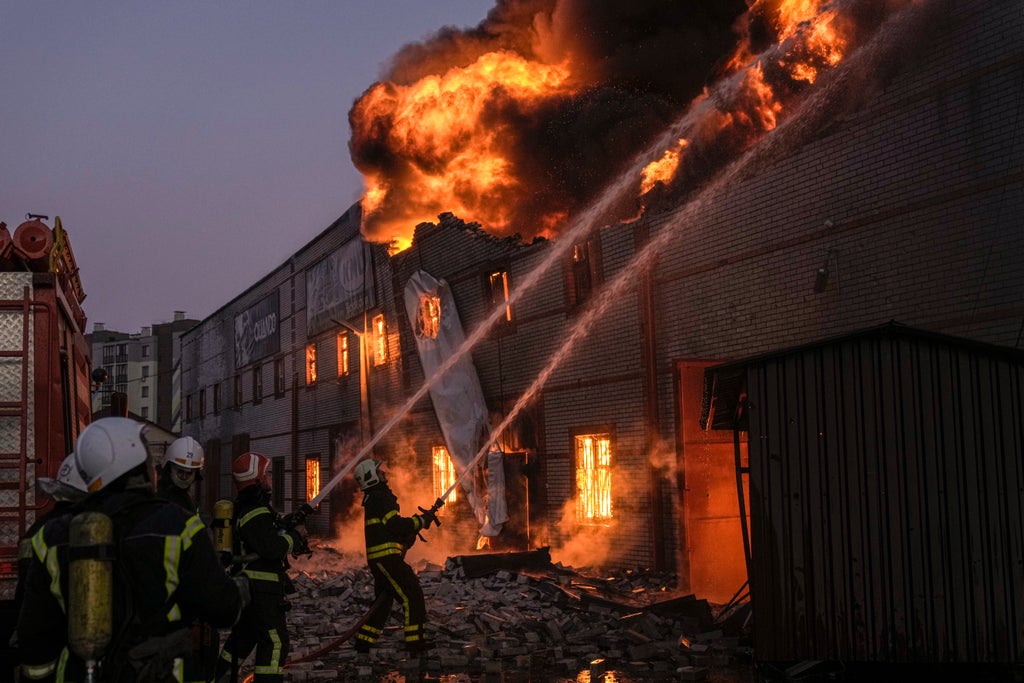
It is no longer certain that Russian forces will launch a full-scale assault on Kyiv, western officials have said, raising doubts for the first time since the war began over whether Moscow is prepared to pay the huge costs any such attack would incur.
Western officials have been saying until recently that a push on the Ukrainian capital on a huge scale seemed inevitable, with one stating last week that Russian troops are “continuing to tighten the noose” around Kyiv, and that “they are still set on moving in, we’re reasonably confident. It’ll be utterly horrific when they do”.
But Russian forces have made little progress since then, while suffering significant losses, which have left them considerably weakened and unable as yet to encircle the city.
On Thursday, a senior official commented: “I think it’s a question as to whether Moscow now intends to try to assault Kyiv or not, and I don’t know the answer to that. To do so, in my judgement, with or without bombardment, would be very costly for Russia.
“I am not saying they will not do it. I am simply saying I don’t know that. Therefore your strategy in terms of how you would use munitions under those circumstances would be part of your calculation. I think we need to wait and see what happens with Kyiv if it is fully encircled. Does Russia then try to assault it? Or does it try to strangle it?”
Despite fierce fighting for days, Russian forces have yet to take towns just outside Kyiv, such as Irpin and Markiv, which they will need to control before a thrust into the capital. A 40-mile-long military convoy that was heading in the direction of the city has dispersed, but there are no definite signs that it had secured vantage positions.
The official continued: “An ill-judged ground assault on a city as well-prepared as Kyiv, with really determined and committed defenders, would be a costly business. Russia has to count the cost of casualties, so let’s see how things progress.”
The assessment came as the war on the ground continued on Thursday at an attritional pace.
In Kyiv, officials said the Kalynivka and Brovary suburbs of the capital were struck by airstrikes on Thursday.
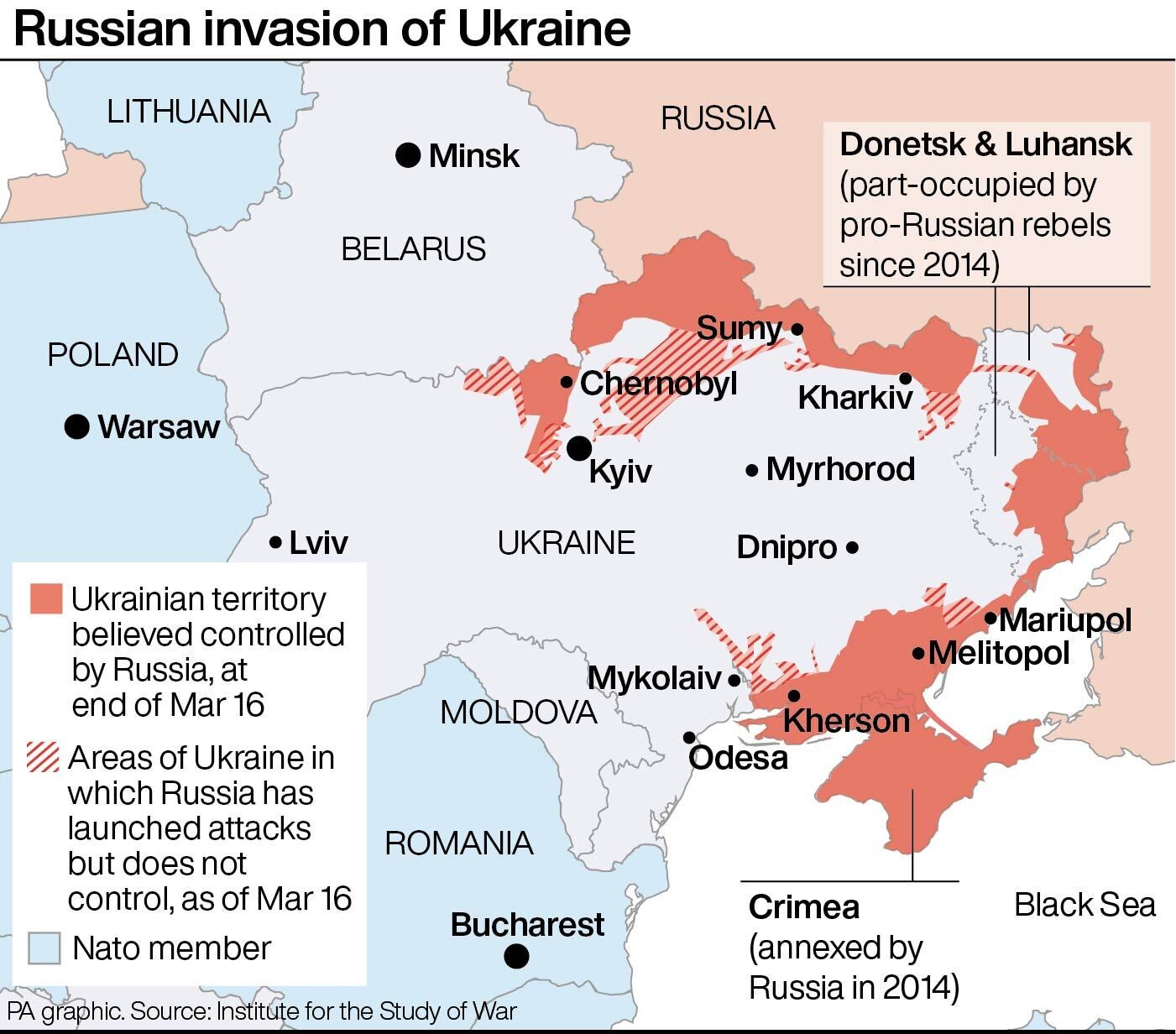
Rescue workers continued to search for survivors in the ruins of a theatre blown apart by a Russian airstrike in the besieged and encircled city of Mariupol, though the picture remained unclear.
Hundreds of civilians had been taking shelter in the theatre after their homes were destroyed during three weeks of bombardment in the southern port city of 430,000.
More than a day after the airstrike, there were no reports of deaths. However, with communications disrupted across the city and movement difficult because of shelling and other fighting, there were also conflicting reports on whether anyone had emerged from the rubble.
Early reports suggested that there were more than 1,000 people sheltering in the theatre when it was hit, fuelling fears that hundreds may have been killed in an attack that has been internationally condemned.
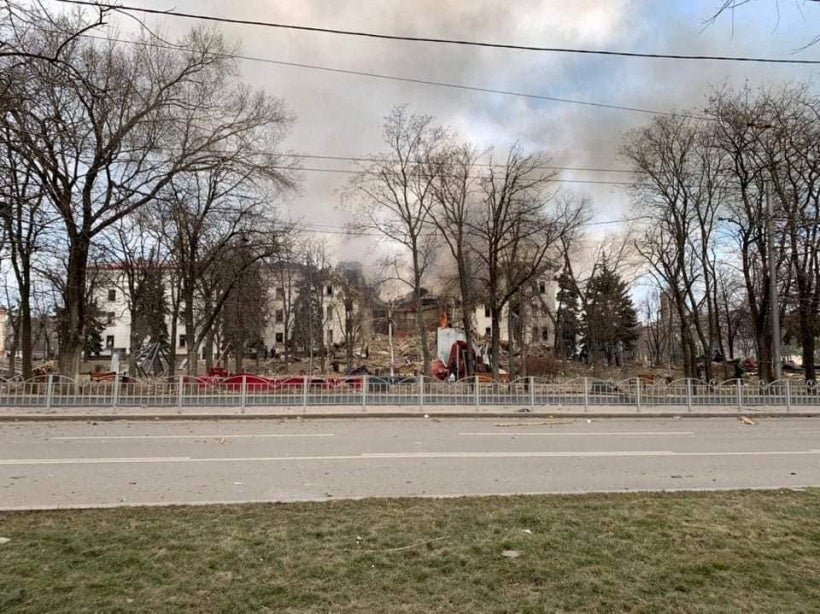
“The bomb shelter held. Now the rubble is being cleared. There are survivors. We don’t know about the [number of] victims yet,” Mariupol mayoral adviser Petro Andrushchenko told Reuters.
“We hope and we think that some people who stayed in the shelter under the theatre could survive.”
He said rescue work was under way to reach survivors and establish the number of casualties.
One Ukrainian MP said people were seen emerging alive from the shelter as rescuers started to dig through rubble on Thursday morning.
The rubble had buried the entrance to the shelter inside the theatre, and it was not yet known how many people had been killed or injured, said Pavlo Kyrylenko, head of the Donetsk regional administration.
“Now there are pregnant women and women with children under the rubble there,” he said.
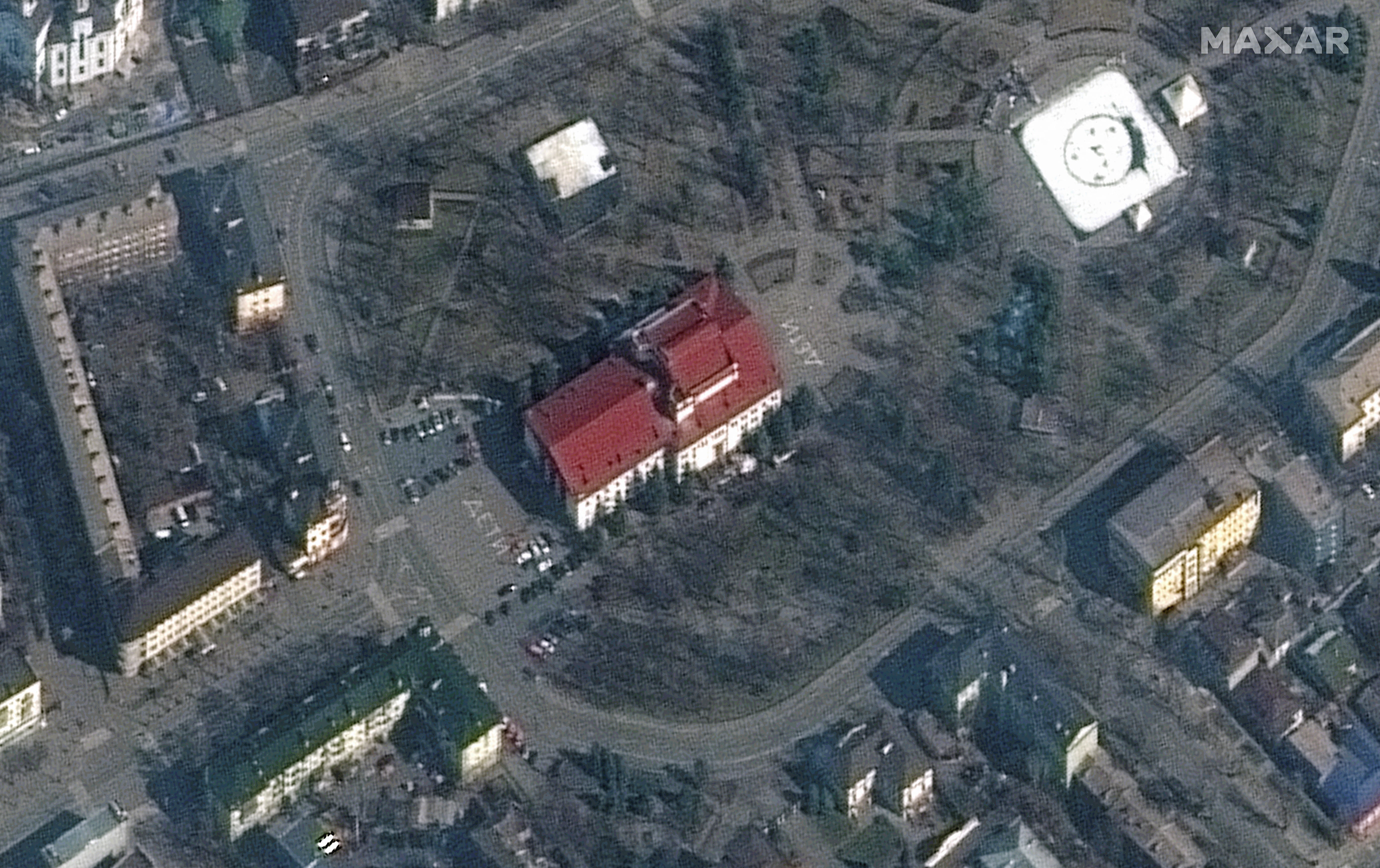
The word “children” had been painted in Russian in large letters on a pavement outside the building, in an apparent attempt to protect it from those carrying out the bombing.
Wednesday’s attack has been widely condemned. Only hours after it occurred, US president Joe Biden called Russian leader Vladimir Putin a “war criminal”.
In the northern city of Chernihiv, at least 53 people had been brought to morgues over the past 24 hours, killed by heavy Russian air attacks and ground fire, the local governor, Viacheslav Chaus, told Ukrainian TV on Thursday.
Ukraine’s emergency services said a mother, father and three of their children, including three-year-old twins, were killed when a Chernihiv hostel was shelled.
Civilians were hiding in basements and shelters across the city of 280,000. “The city has never known such nightmarish, colossal losses and destruction,” Mr Chaus said.
And at least 21 people were killed when Russian artillery destroyed a school and a community centre before dawn in Merefa, near the northeastern city of Kharkiv, according to its mayor Veniamin Sitov.
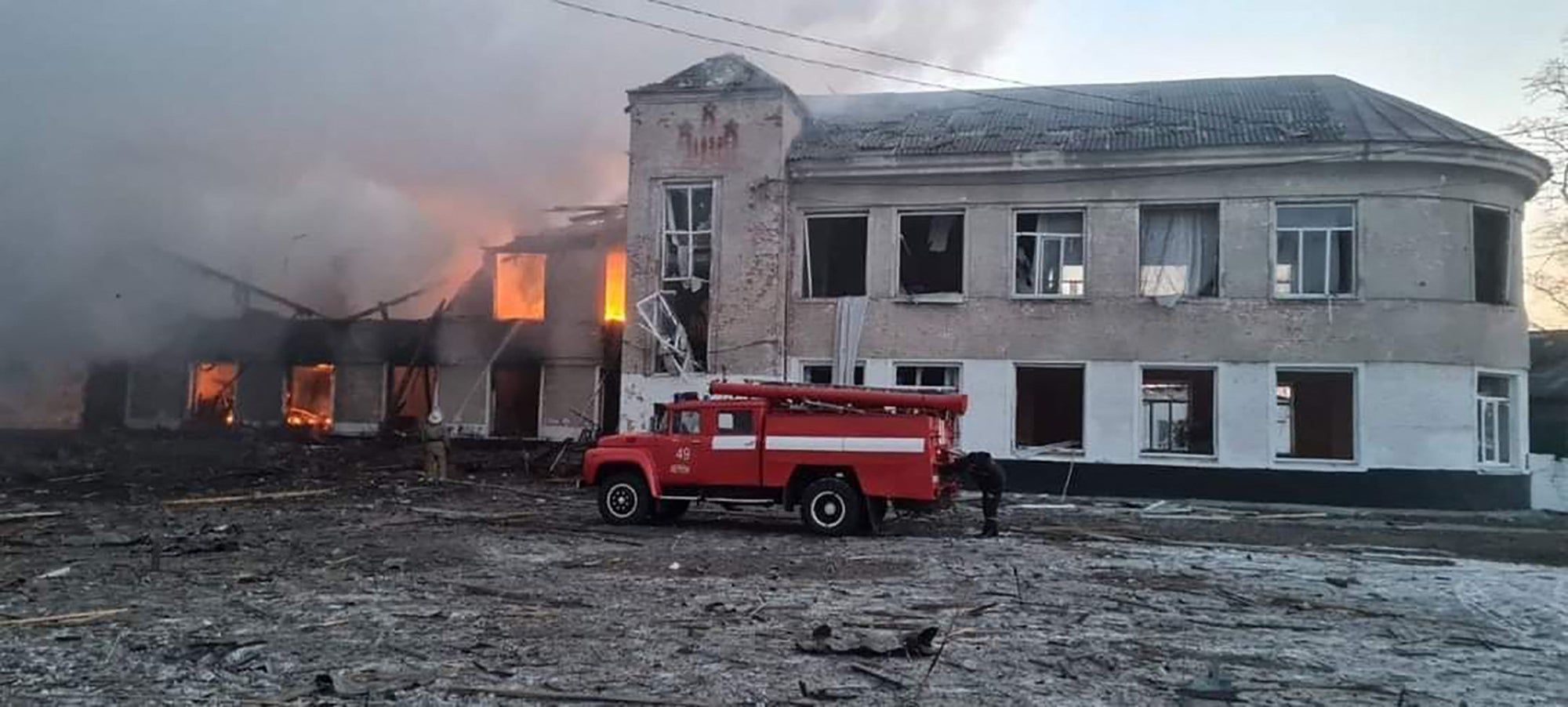
A US official said Russia had fired more than 1,000 missiles at Ukrainian targets since the start of its invasion, over three weeks ago.
Ukrainian president Volodymyr Zelensky called for more help for his country in a video address to German lawmakers, saying thousands of people had been killed, including 108 children.
He also called on German leaders to “tear down this wall” dividing Europe, echoing Ronald Reagan’s famous challenge to Soviet leaders in the 1980s.
The UN Security Council planned to meet on Thursday to discuss the crisis. In a joint statement, the foreign ministers of the G7 accused Mr Putin of conducting an “unprovoked and shameful war”.
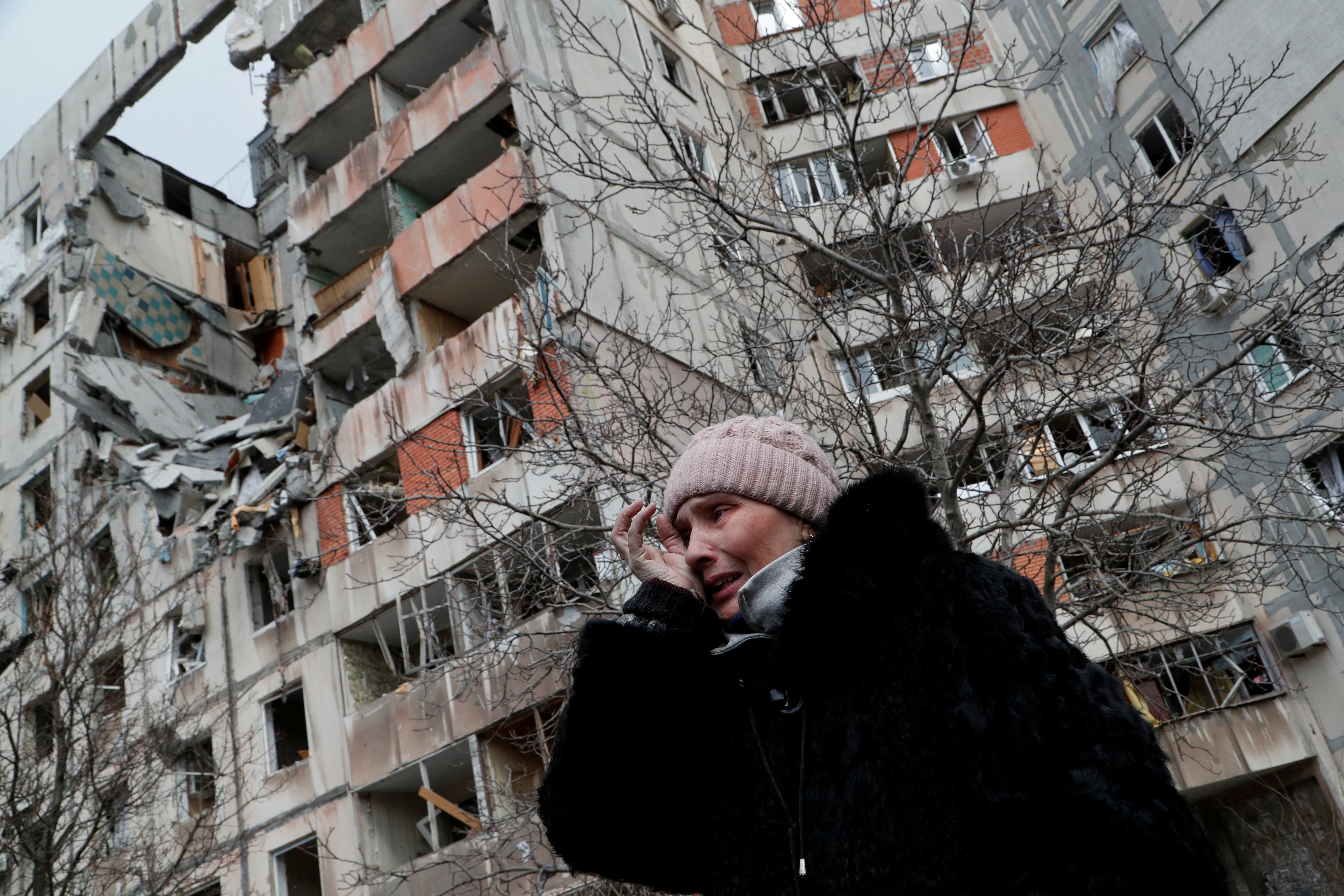
Russia, though, batted away criticism of its actions. Moscow’s foreign ministry spokesperson Maria Zakharova said on Thursday that the allegation that Russia had bombed the Mariupol theatre was a “lie”.
“Russia’s armed forces don’t bomb towns and cities,” she told a briefing.
Fighting during the war has led to more than 3 million people fleeing Ukraine, according to the UN. The death toll remains unknown, though Ukraine has said thousands of civilians have died.
The Independent has a proud history of campaigning for the rights of the most vulnerable, and we first ran our Refugees Welcome campaign during the war in Syria in 2015. Now, as we renew our campaign and launch this petition in the wake of the unfolding Ukrainian crisis, we are calling on the government to go further and faster to ensure help is delivered. To find out more about our Refugees Welcome campaign, click here. To sign the petition click here. If you would like to donate then please click here for our GoFundMe page.







